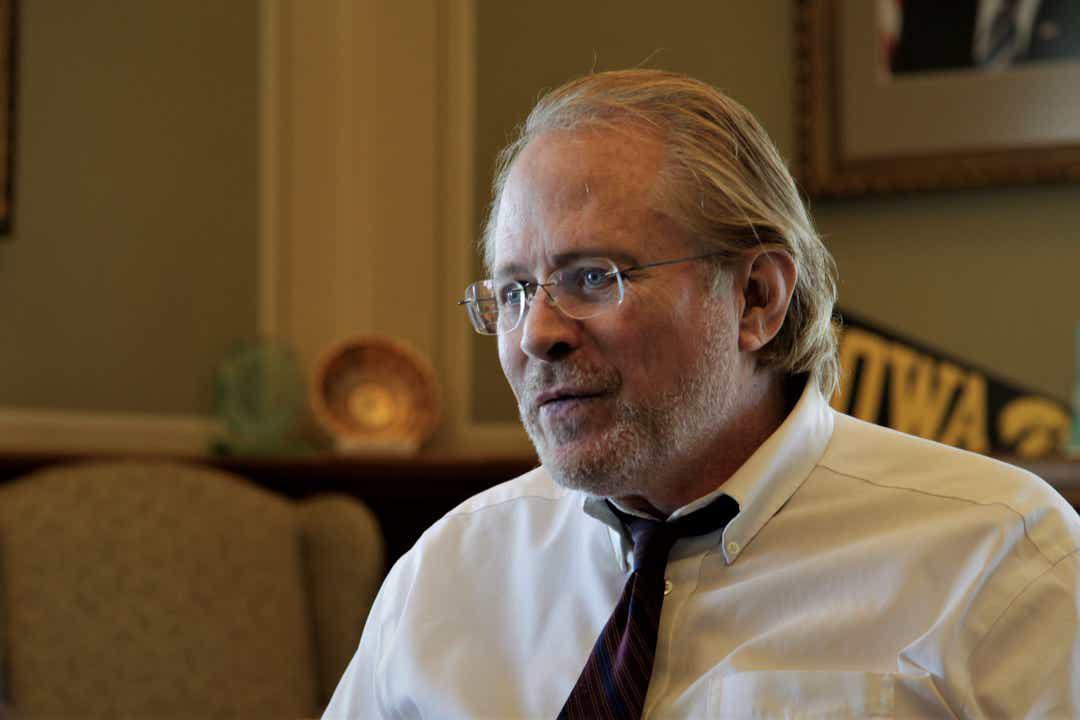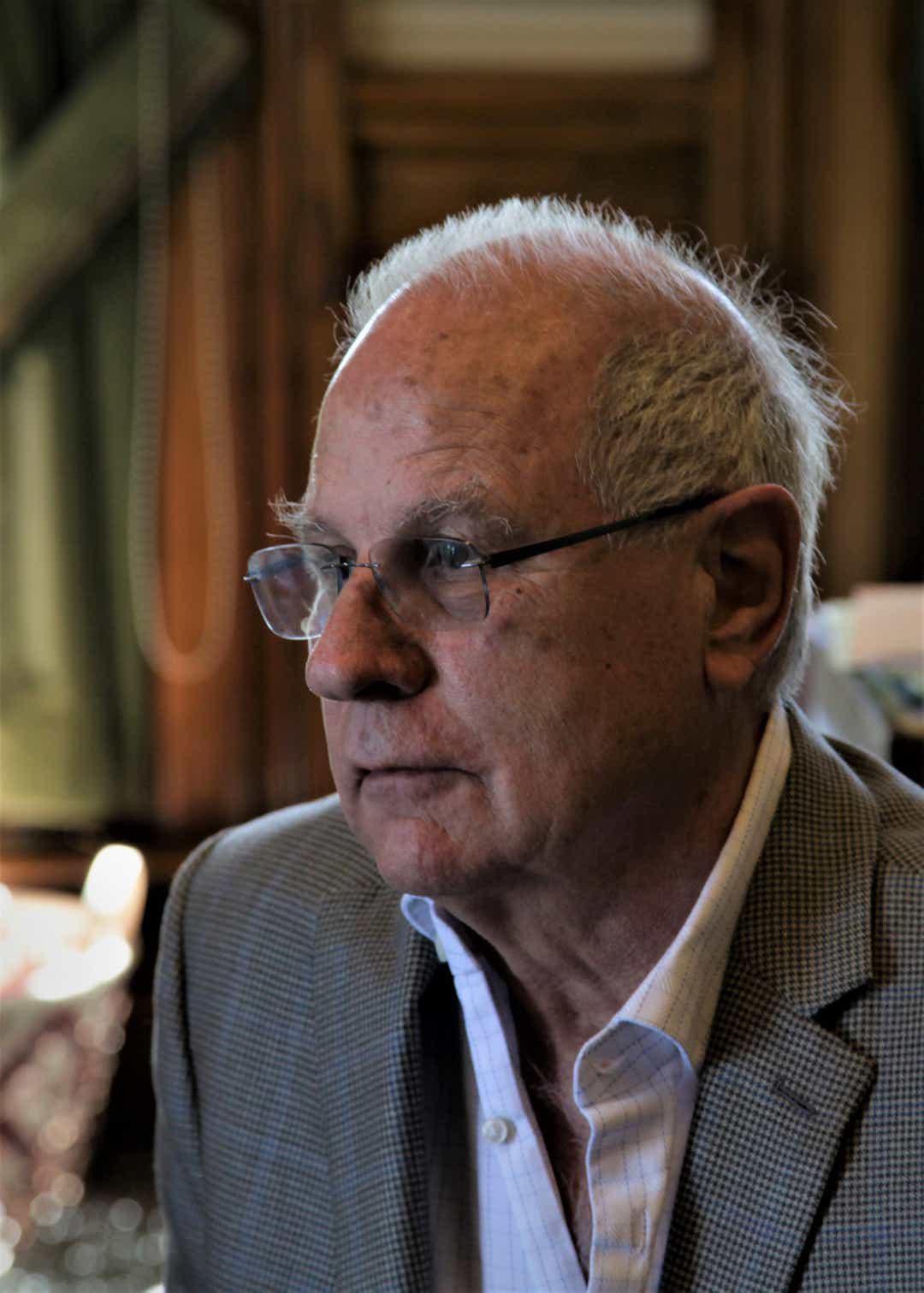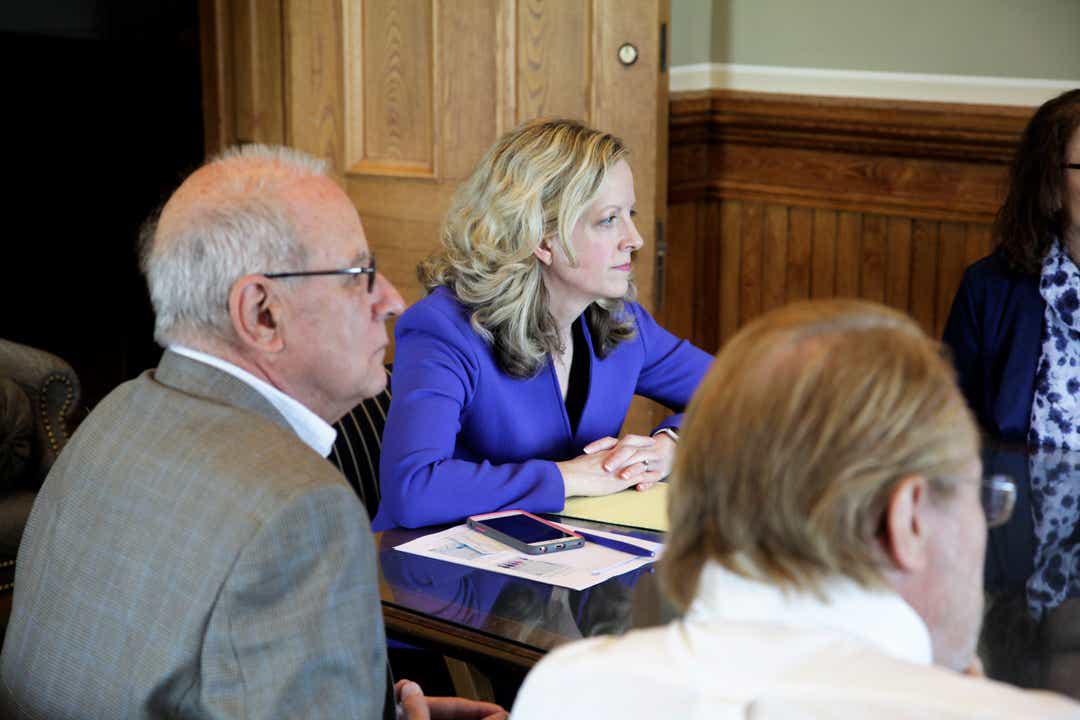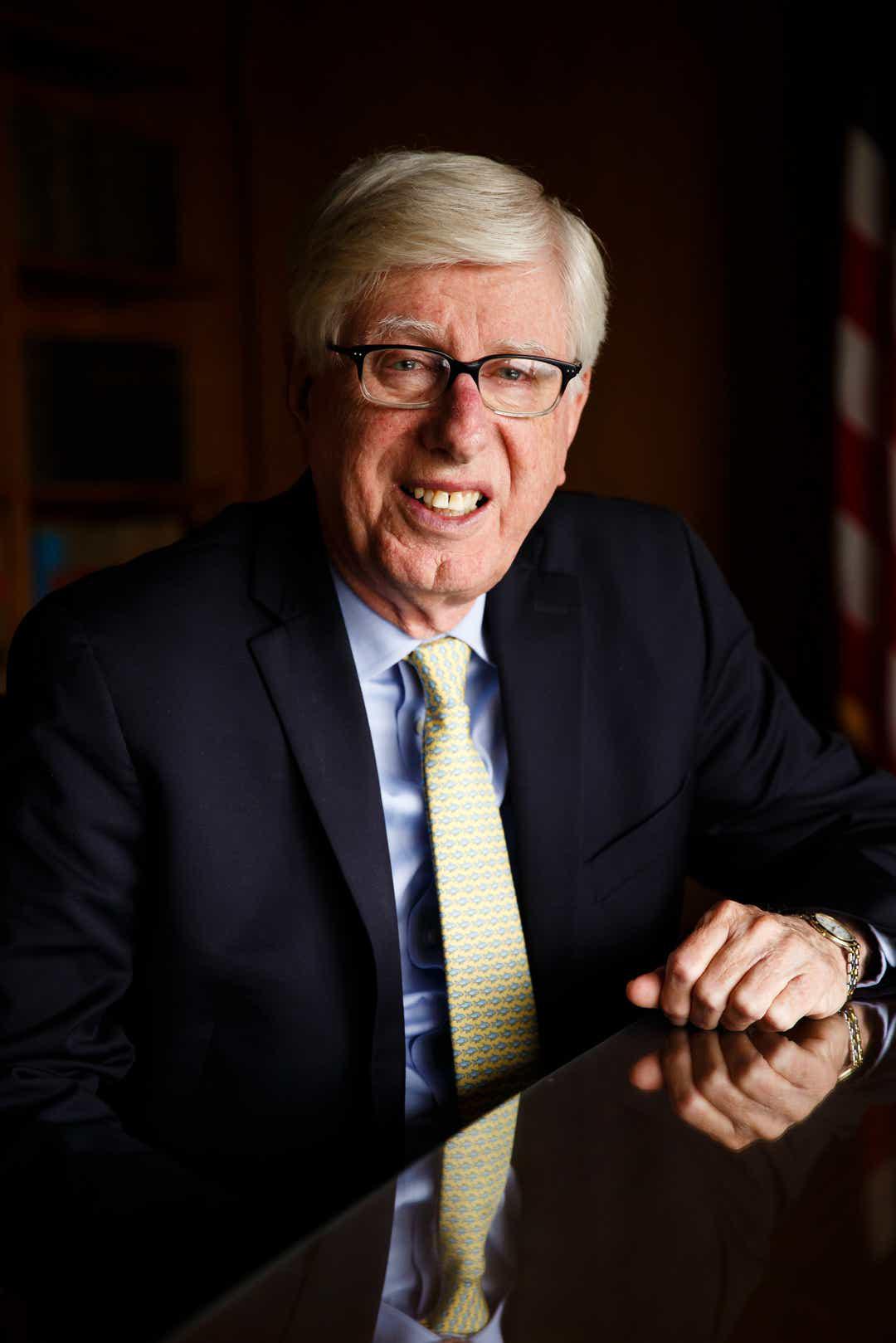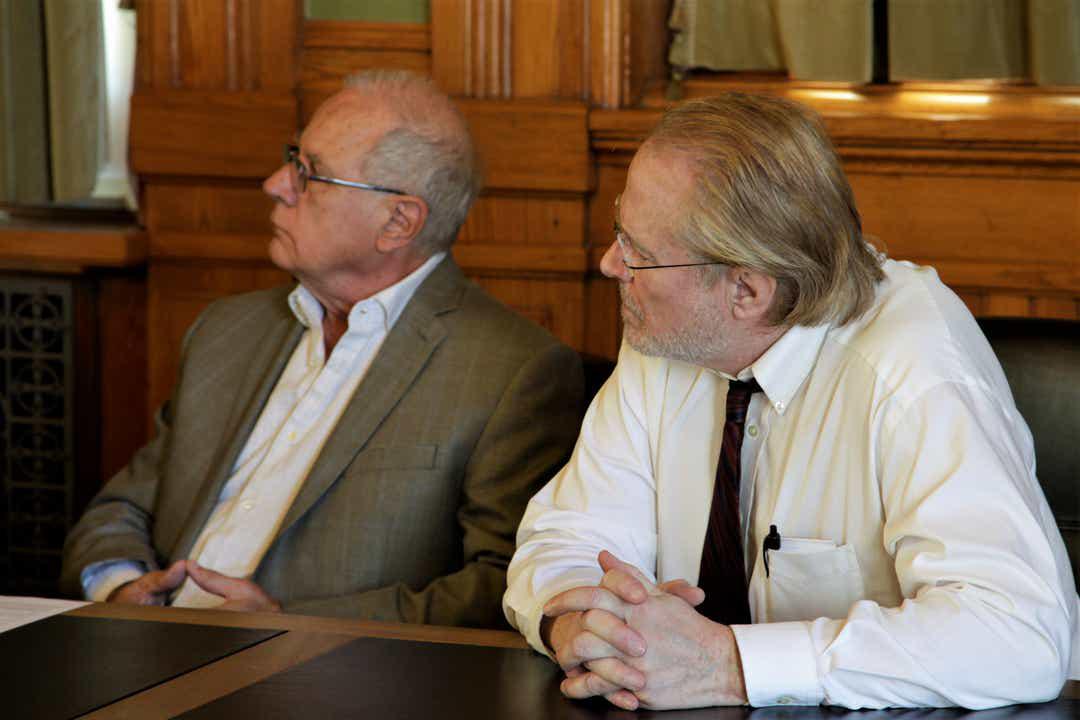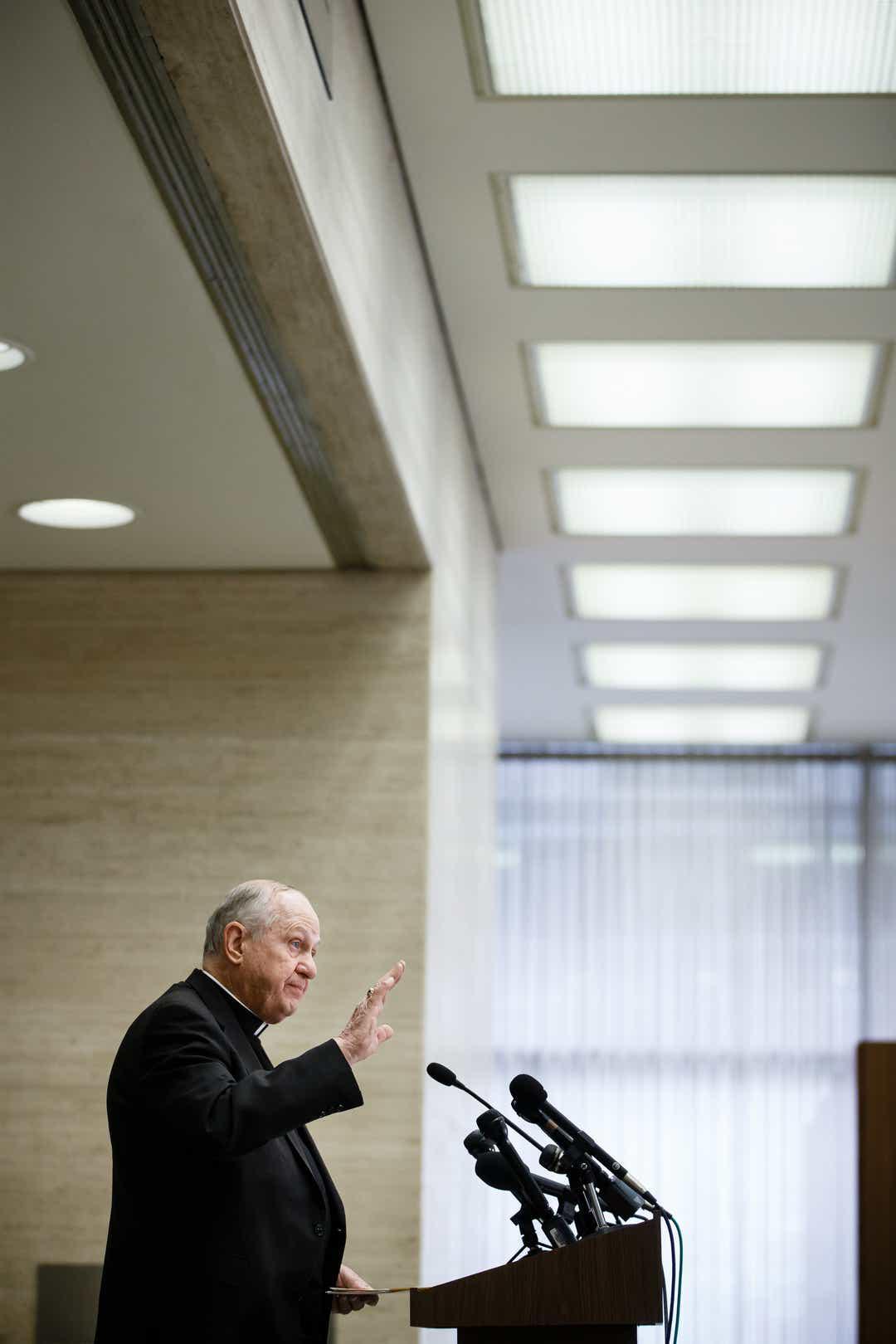|
Clergy abuse victims fighting to extend statute of limitations in Iowa
By Shelby Fleig
Two years after The Boston Globe's Pulitzer Prize-winningseries in 2002 that uncovered decades of abuse and cover-ups in New England parishes, Iowan John Chambers, 66, regained long-repressed memories of being sexually abused as a sophomore at Dowling High School. Chambers, a lifelong Des Moines resident, had been in and out of therapy for decades by that point battling crippling depression. His deteriorating mental health led to substance abuse and withered his relationships, he said. He was 52 when he remembered instances of fondling and indecent exposure by the Rev. Leonard Kenkel, in 1966 and 1967. According to Child USA, a nonprofit think-tank that studies child abuse, 52 is the average age that adults who were victims of child sex abuse first disclose their experiences. Chambers sued the Diocese of Des Moines and Kenkel in 2004. Long past the statute of limitations to press criminal charges, Chambers sought damages for nearly four decades of medical and psychological turmoil and treatment. At the time, the diocese said its Allegation Review Committee had reviewed Chambers' complaint, but did not find evidence of abuse. "In my situation, I got a letter of apology," said Chambers, who settled with the diocese in 2007. "He admitted what he did." Iowa is one of nine states to pass changes to their statutes of limitations this year. But the state's criminal and civil statute of limitations, which limit how much time a person has to pursue legal action after an alleged crime, are among the weakest in the nation, according to Child USA. A criminal justice omnibus signed by Gov. Reynolds this month extends the length of time that victims of child sex abuse can file criminal charges by five years. Iowans now have 15 years after the date they turn 18 to do so, or until they turn 33. Some lawmakers and advocates want to go further, and promise to continue their efforts to completely eliminate the statute of limitations in such cases. They're calling on Iowa Attorney General Tom Miller to take the lead, as other states' attorneys general have done in recent months in response to abuse crises in athletics, religious and social organizations and workplaces. "When you have a limited statute of limitations like we do in Iowa, it is a get-out-of-jail free card for predators. It allows them to continue to prey on others," said Tim Lennon, president of the Survivors Network of those Abused by Priests (SNAP), at a recent news conference at the Iowa State Capitol. Lennon, who says he was raped and abused by a priest in Sioux City as a child, also recovered his memories of the abuse as an adult — at age 43. Like Chambers, Lennon said the 2002 Boston revelations played a role in triggering his recollections. Given how many decades it takes for many abuse survivors to come forward, Lennon said he expects the lists of accused priests in Iowa to grow. But with the current statute of limitations in place, he said true accountability is off the table. More: Sioux City diocese names 28 priests 'credibly accused' of sexually assaulting minors ICC against nixing civil statute of limitationsMultiple bills introduced in the Iowa Legislature this past session were designed to alter civil and criminal statute of limitations for sex crimes against minors. Sen. Janet Petersen, D-Des Moines, said Iowa's civil limitations are especially bad. Victims of sexual abuse by a counselor, therapist or school employee "have five years to go after that organization for damages, from the time you leave that school or end therapy or counseling,” Petersen said. In all other child sexual abuse cases, “the civil statute of limitations runs out at the age of 19.” Her bill to nix time limits for civil charges, SF189, didn't get far. The legislation had bipartisan backing, but a subcommittee meeting was never scheduled, she said. Petersen said she spoke with the executive director of the Iowa Catholic Conference (ICC), Tom Chapman, before the session. "I asked him to reach out to the Catholic bishops and ask that they not oppose this important legislation," the senator told the Register. But Chapman lobbied against the civil limitations bill. "Statutes of limitation have been a part of the law for centuries for good reason because they play an important role in ensuring fairness in the justice system," Chapman told the Register in an email. "The passage of time makes it difficult for any accused person or institution to defend themselves." Petersen said she heard from "several women in the Catholic Church who wanted information about why the Catholic Conference was opposing this (civil statute of limitations) legislation." The ICC, which makes decisions with consensus from the state's bishops, did not lobby against bills to lengthen or eliminate the criminal statute of limitations for sex abuse crimes. More: Diocese of Des Moines, following Sioux City's lead, names 9 priests accused of abusing minors What about the Attorney General?Petersen also called for Miller and Reynolds to "show more leadership" on the issue. "If they need more legal tools, I will sponsor legislation to expand their power to go after sexual predators and organizations covering up the crimes," she said. Miller does not have the authority to launch a statewide investigative grand jury. Lynn Hicks, a spokesman for the Attorney General, said in an email that the office is "actively working on this issue," but that he couldn't yet disclose details. Miller met with each of the state's bishops and last year publicly urged victims to come forward. More: Iowa is one of many states looking to Pennsylvania for answers on clergy sex abuse Attorneys general in the Midwest are taking varied approaches. Nebraska Attorney General Doug Peterson recently subpoenaed 400 Catholic churches, schools and other organizations for decades of records. In Michigan, five former priests face criminal charges as a result of Attorney General Dana Nessel's probe. Investigations in Illinois and Missouri continue. Iowa Chief Deputy Attorney General Eric Tabor expressed his support for Petersen's legislation in a subcommittee meeting this year, Hicks said. Lennon and Chambers agree that more needs to be done to investigate church records. Kenkel, the former Dowling science teacher, is listed in the diocese's record as having just one credible victim as a result of a 2018 complaint. As a result, he was defrocked this year — but still resides in a senior care facility within the diocese. The Diocese of Sioux City included the Rev. Peter Murphy, the man Lennon accused of raping him, in its list of 28 credibly accused priests this year. Lennon received a settlement and apology from the diocese in 2016. Murphy died in 1980. But the lists aren't complete without names of accused bishops, nuns, brothers, deacons, religious order priests, and priests accused of abusing other adults, Lennon said. The Diocese of Dubuque more than a decade ago published a list of accused priests that now includes 33 names. The Archdiocese of Dubuque has named 31 accused priests. More: Why Iowans may never know the full extent of child sexual abuse and cover-ups by priests Catholics grappling with abuse crisisThere was a year-long period in Chambers' life where he saw up to three therapists at a time. "I still have issues of trust with authority figures and issues with feeling safe," he told the Register last year. Chambers no longer considers himself Catholic. "I struggled with what kind of church was I raised in, with all these cover-ups and thousands of abuse cases. I struggled with my faith in the Church and I've lost faith in the Catholic church," he said. "The whole thing is diabolical — just sick." Practicing Catholics grapple with the extent of the abuse, too. Steve Mahoney, 67, attended Dowling in the same class as Chambers, and was also Kenkel's student. Mahoney, of Gilbert, is involved in the Archdiocese and attends mass every Sunday. He was never abused. But what he witnessed as a child was likely grooming by an abuser, he said. "We always thought it was unusual — a priest with a black Mercedes," Mahoney said of the Rev. Albert Wilwerding, named in the Des Moines list of abusive priests. Wilwerding, who died in 2004, was the subject of 25 credible allegations, according to the diocese. The devout Catholic has "mixed emotions" on the push to eliminate the statute of limitations. Kenkel, he said, has "full blown dementia" and couldn't stand trial. Most accused priests are dead, he pointed out. On the other hand, he said, the opportunity to press charges could bring a sense of justice to survivors. Now that the latest legislative session is over, changing the statute of limitations in Iowa will have to wait. In the meantime, concerned Iowans should "make their voices heard" by contacting elected officials, Petersen said. "I don't think you can open the newspaper any day of the week without seeing sex crimes against children," she said. "But one of the most amazing things is that they've turned their pain into fuel to try to prevent this from happening to other families." More: Iowan who molested his granddaughter ordered to pay $10 million; judgment called largest of its kind More: Iowa pastor expects to be shut out by United Methodist Church vote to continue LGBTQ ban How to report abuseIn addition to contacting local law enforcement, victims of any crime in Iowa can get 24/7 support through the Iowa Crime Victims Helpline by calling 1-800-770-1650 or texting "IOWAHELP" to 20121. The Diocese of Des Moines said survivors can file a complaint or seek support by contacting Sam Porter, a victim assistance advocate, at 515-286-2015 or Sam.Porter@polkcountyiowa.gov. Victims of violent crime can also contact the attorney general's crime victim assistance division at 515-281-5044. Contact: shelbyfleig@dmreg.com
|
.
Any original material on these pages is copyright © BishopAccountability.org 2004. Reproduce freely with attribution.
